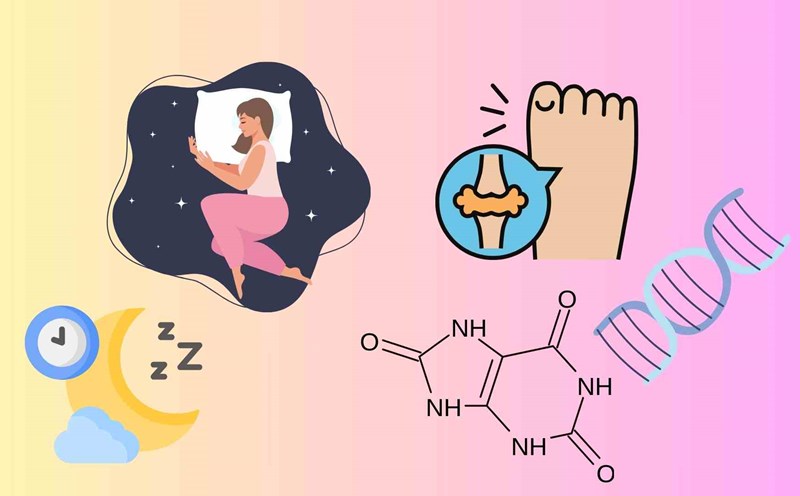According to the World Health Organization (WHO), the rate of people with gout is on the rise due to a diet rich in animal protein, alcohol and lack of exercise.
However, some types of summer fruits not only help cool down but also have the effect of effectively supporting the reduction of uric acid levels.
Below are 4 types of fruit that have been confirmed by international medical studies to be beneficial in controlling uric acid:
Cherry
Cherry is a top fruit on the list thanks to its anti-inflammatory properties and ability to significantly reduce uric acid.
Consuming cherries for 2 consecutive days can reduce the risk of acute gout recurrence by up to 35%.
This is because anthocyanins, the antioxidant in cherries - help inhibit the enzyme xanthine oxidase, reducing uric acid production in the blood.
Watermelon
Watermelon is a familiar summer fruit, containing up to 92% water, which is very good for supporting the excretion of uric acid through urine. In addition, watermelon also contains citrulline, an amino acid that can improve kidney function.
Citrulline helps increase nitric oxide production and supports blood circulation, indirectly promoting the removal of uric acid from the body.
Pineapple ( pineapple)
Pineapple contains bromelain, a natural enzyme with anti-inflammatory properties. A study from the University of Maryland Medical Center (USA) said that bromelain can reduce inflammation in gout-prone joints and help reduce uric acid levels.
Pineapple is also high in vitamin C, which helps enhance kidney function and improve uric acid excretion.
Oranges and citrus fruits
Citrus fruits are rich in vitamin C, an important nutrient in reducing uric acid.
Supplementing daily vitamin C from natural sources such as oranges and tangerines can reduce 10-15% of uric acid levels in the blood in healthy people. Vitamin C works by increasing renal plaque filtration and reducing the reabsorption of uric acid in the renal Tube.
Although the above fruits all have the effect of supporting uric acid reduction, patients need to pay attention not to consume too much, especially for those with high fructose (such as watermelon, pineapple), because fructose exceeding the threshold can increase the risk of increased uric acid.
The US National Institutes of Health (NIH) recommends consuming about 2-4 servings of fruit per day, combined with drinking enough water and reducing foods containing purines.











